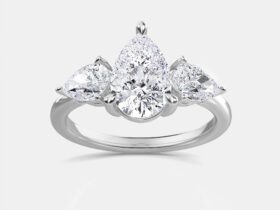Jewelry has long been cherished not only for its aesthetic appeal but also for its potential to hold significant value. Hidden within your jewelry box may lie treasures waiting to be discovered and appreciated, both sentimentally and financially.
Understanding the Importance of Jewelry Appraisal
When you think about the jewelry you own, it’s easy to get lost in the beauty of each piece. However, what many people don’t realize is that the value of jewelry can fluctuate over time due to various factors, including market trends and the rarity of materials. This is where jewelry appraisal comes into play.
The Basics of Jewelry Appraisal
What is Jewelry Appraisal? Jewelry appraisal is the process of determining the value of a piece of jewelry, taking into account its materials, craftsmanship, historical significance, and market demand.
Why is it Important? Appraisal is crucial for insurance purposes, estate planning, selling jewelry, and simply understanding the value of your collection. It can also help you make informed decisions about repairs or modifications.
Choosing a Qualified Appraiser Before diving into the appraisal process, it’s essential to find a reputable and certified appraiser who specializes in jewelry. Look for credentials such as the Gemological Institute of America (GIA) certification, which ensures expertise in gemstone identification and grading.
The Appraisal Process
Step 1: Finding an Appraiser
Start by researching and selecting an experienced appraiser. Ask for recommendations from friends or jewelers you trust. Ensure the appraiser is impartial and does not buy or sell jewelry, as this could lead to a conflict of interest.
Step 2: Gather Your Jewelry
Collect all the jewelry you want to have appraised. This includes pieces you’ve inherited, received as gifts, or purchased yourself.
Step 3: The Appraisal
During the appraisal, the appraiser will carefully examine each piece, considering factors like the type and quality of gemstones, metals used, craftsmanship, and any historical or cultural significance. They will also assess the overall condition of the jewelry.
Step 4: Receiving the Appraisal Report
Once the appraisal is complete, you’ll receive a detailed report outlining the value of each piece and the methods used to determine it. This report is essential for insurance purposes, as well as for understanding the worth of your jewelry.
Conclusion
Jewelry appraisal may seem like a complex process, but it’s a valuable tool that empowers you to make informed decisions about your jewelry collection. Whether you’re looking to protect your investments, sell pieces, or simply appreciate the sentimental and financial worth of your jewelry, a professional appraisal is the first step.







